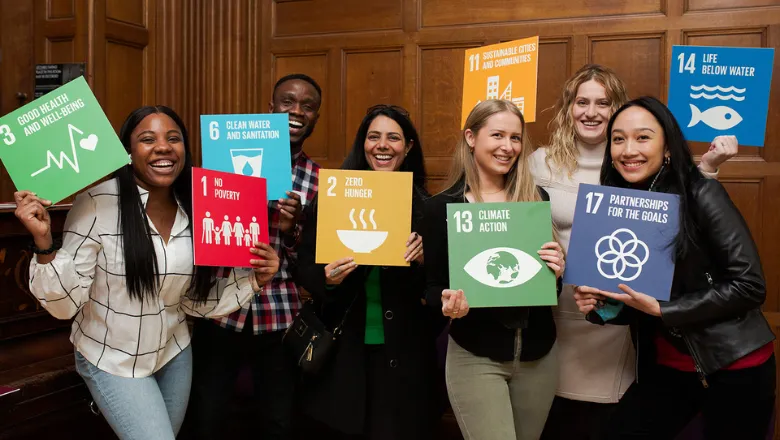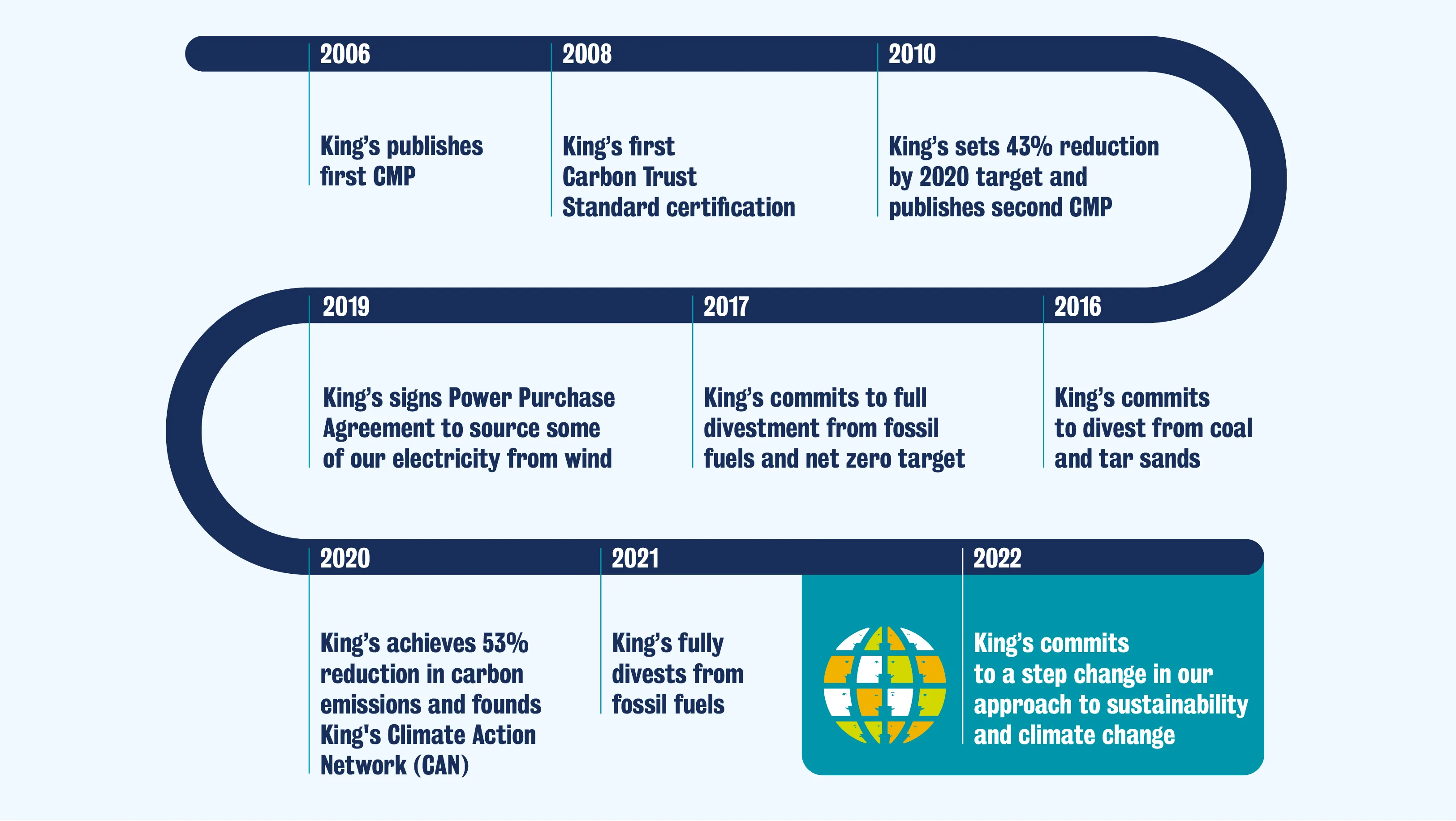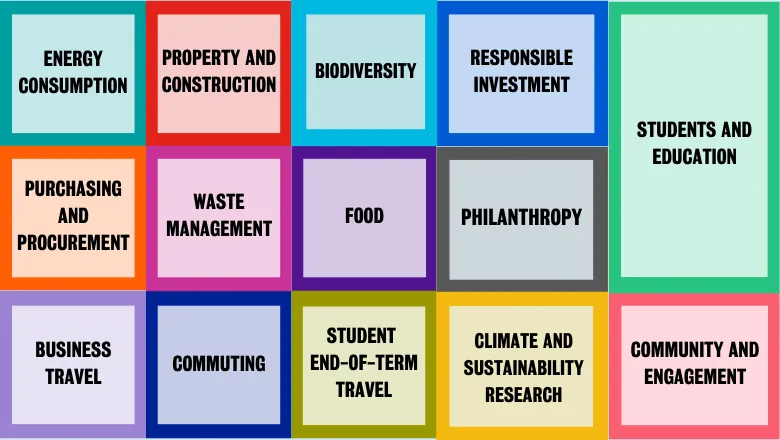Our Climate & Sustainability Action Plan sets out how we will rapidly scale our response to the climate emergency

King's Climate & Sustainability Action Plan, developed by the university's Climate & Sustainability team in consultation with students, staff, alumni and members of King's Climate Action Network (King's CAN), has now been published.
The action plan outlines 13 key impact areas to guide the university's approach to sustainability and climate change, informed by the United Nations Sustainable Development Goals (UN SDGs), which set targets for holistic and sustainable global development by 2030.
Key deliverables include:
- At least a 50% reduction in carbon emissions by 2030, across energy use, business travel, our supply chain, commuting and waste
- Ensuring sustainability and climate education is embedded into all King's degree programmes by 2026
- A four-fold increase in climate and sustainability research activity by 2029
- Increasing investments with socially responsible benefits to 40% by 2025
- Development of guidance on internal carbon pricing, to ensure we can better align financial decision-making criteria with King's climate action goals
The publication of the action plan coincides with the start of King's Climate & Sustainability Month which runs throughout February. It features ambitious targets to reduce emissions from our buildings so we can deliver the 40-50% reduction needed by 2030 to help limit global warming to 1.5°C.
The plan prioritises absolute reduction of carbon emissions over offsetting, which compensates for emissions by funding equivalent carbon dioxide savings elsewhere, and carbon removals, which includes natural strategies like tree restoration and agricultural soil management.
That is why we have now set a 2030 net zero target to give us more time to focus and invest in direct emissions reductions on our estate and in our operations.
The climate crisis calls for a fundamental shift in behaviours at societal and individual levels. At King's we are rapidly scaling our response to the climate emergency through a clear and target-driven strategic plan. At the heart of this is embedding sustainability into our teaching, mobilising cross-faculty expertise to intensify sustainability research, and advancing climate action across our operations and decision-making. – Professor Rachel Mills, Senior Vice President (Academic)
Our progress so far:
King's has been taking action on climate and sustainability for many years. In 2006 we developed our first Carbon Management Plan (CMP) and in 2010 we committed to reduce scope 1 and 2 carbon emissions by 43% between 2005-6 and 2020.
In 2021, we fully divested from investments in fossil fuels almost two years ahead of target and we have successfully reduced emissions under the university's direct control by more than half in the last 15 years.
All of this happened while King's estate size was growing, and our student numbers and research volume was increasing. It was achieved through actions such as improving energy efficiency and maximising space utilisation of our existing estate, as well as encouraging behaviour change through our Sustainability Champions programme.

Delivering the Climate & Sustainability Action Plan will require commitments across multiple areas, including capital investment on our estate, some targeted injections of dedicated resources, policy decisions and changes to our ways of working.
The 13 key impact areas are:

This plan outlines a clear journey for all of us, building on progress so far, and laying out the choices we will have to make to achieve our goals for net zero.– Professor Rachel Mills, Senior Vice President (Academic)
The Climate & Sustainability Action Plan was co-created by colleagues across King's through an open consultation and targeted discussions, alongside King's Climate Action Network, an interdisciplinary forum made up of 350 students, staff and alumni who want to take action on climate change.
Through this co-creation, we have been able to reflect the ambition of the King's community in addressing the climate crisis, whether it is by minimising the negative impacts of our operations, or by maximising our positive impacts through education, research and engagement. Thank you to all those who have helped make this plan a reality. I hope our students, staff and alumni within the network and beyond will continue to engage and inform the next phase of our journey as we implement our ambitious plans.– Kat Thorne, Director of Sustainability






